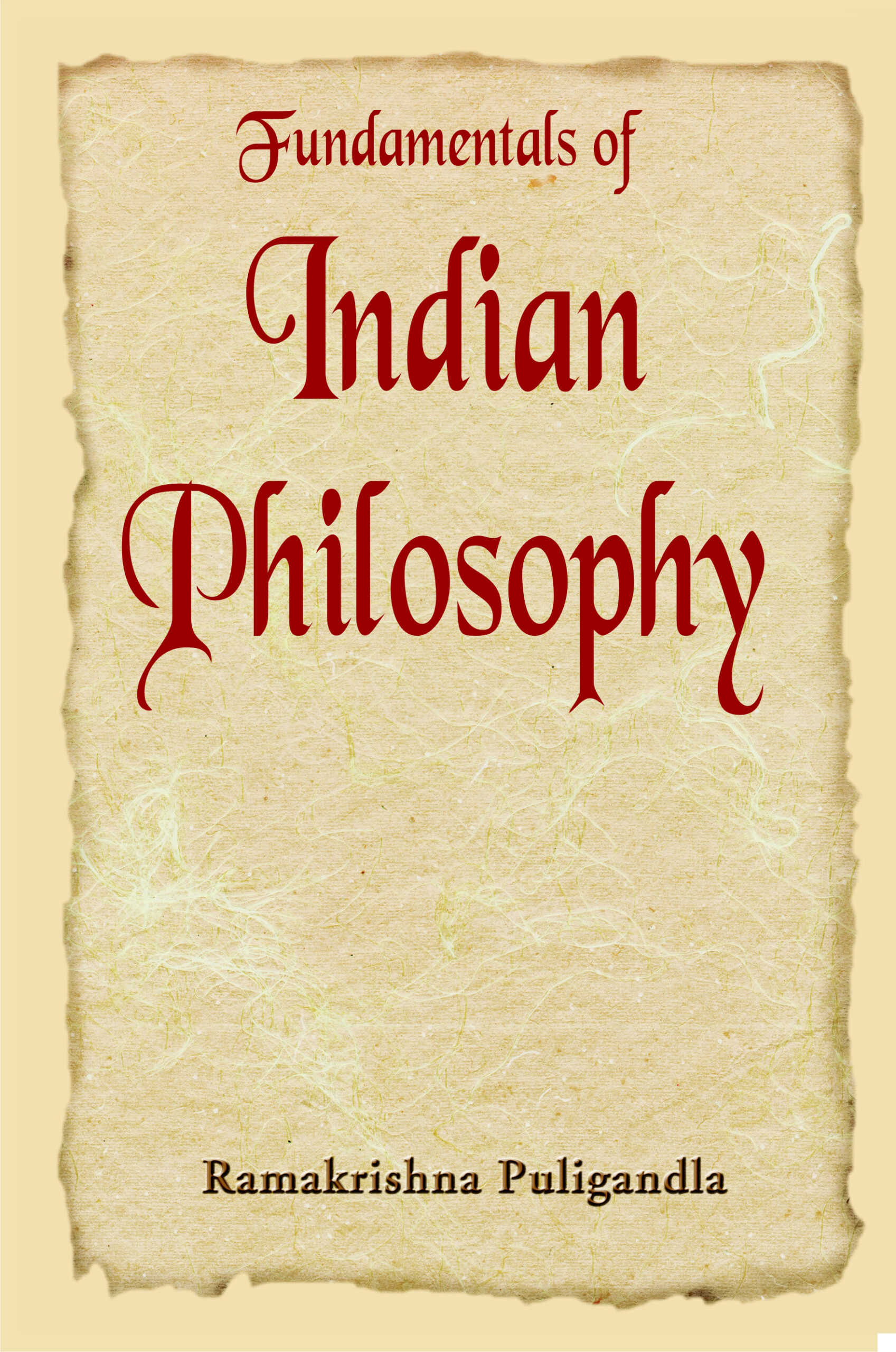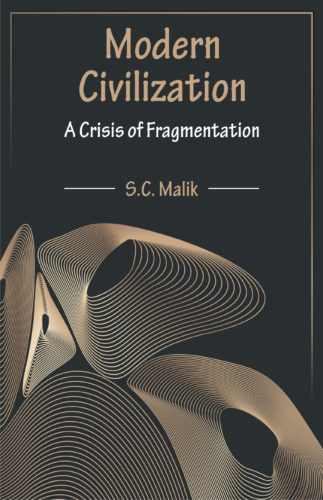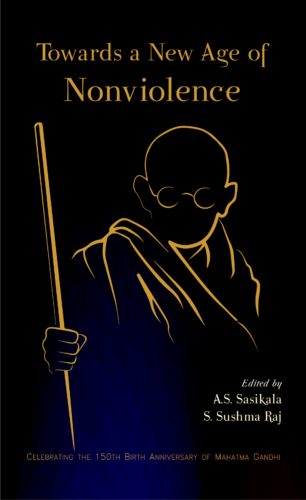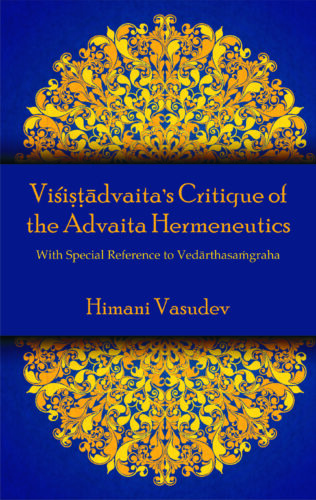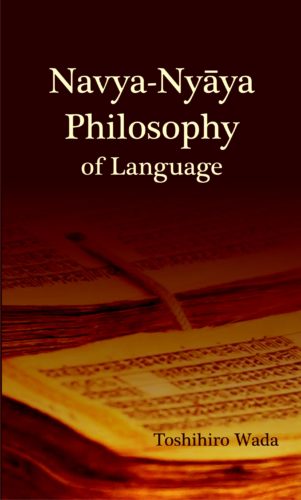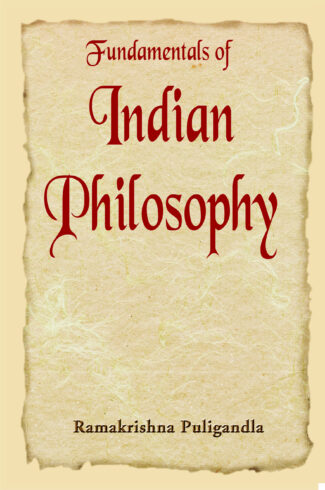
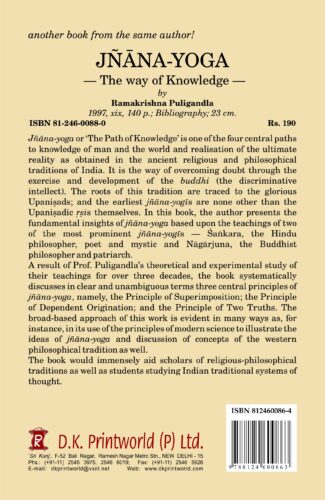
Fundamentals of Indi...
Fundamentals of Indian Philosophy
by: Ramakrishna PuligandlaDr. Puligandla deals with the essentials of Indian philosophy, emphasising its methods, temper and goals while delving into specificities. Major schools of the philosophic tradition (Carvaka materialism, Jainism, Buddhism, Yoga, Vedanta among them) are thoroughly analysed.
Original price was: ₹1,000.00.₹900.00Current price is: ₹900.00.
ISBN: 9788124600863
Year Of Publication: 2017
Edition: 5th
Pages : xix, 362
Bibliographic Details : Glosary, Bibliography, Index
Language : English
Binding : Hardcover
Publisher: D.K. Printworld Pvt. Ltd.
Size: 23 cm.
Weight: 600
Indian philosophy reflects some of the earliest thought-traditions in human history. Its foundations can be traced to ancient minds and their capacity for insatiable curiosity and constant meditation. The Indian thinkers of old aimed their pragmatic philosophies at not just the satisfaction of intellectual curiosity or pursuit of theoretical truths but actually the assimilation of intellectually discerned and established truths into ones own personality for a life of freedom and enlightenment. This is true of modern Indian philosophers, like Sri Aurobindo and Dr. Radhakrishnan, as well. Fundamentals of Indian Philosophy reflects the vastness and richness of this philosophic tradition in a comprehensive and all-embracing yet compact presentation that lays bare the essentials of Indian philosophy. Dr. R. Puligandla takes special care to emphasise the methods, temper and goals of Indian philosophy even while delving into the specificities. All the major schools of the philosophic tradition are objectively and thoroughly analysed the Carvaka materialism, Jainism, Buddhism, Yoga, Vedanta among them. The author details the undeniably bold and original ideas of the Indian thinkers that awe the reader at times with their brilliant insight and element of truth in an approach sincerely aimed at an all-round understanding of the basics of Indian philosophy. This survey not only introduces the readers to issues and answers but also goes to provide the necessary motivation and resources for further study. Complete with an extensive index and a glossary of Sanskrit terms, this text book would prove to be invaluable for students keen to acquire a thorough grounding in the subject. It will also serve as an indispensable reference book for professors and scholars of Indian philosophy.
Preface to the Second Edition
Preface to the First Edition
Acknowledgments
Guide to Pronunciation
1.General Introduction
2.Carvakism: Materialism
Introduction
Epistemology
Metaphysics
Ethics
3.Jainism
Introduction
Metaphysics
Epistemology
God and Liberation
Ethics
4.Buddhism
The Buddhas Teachings
Introduction
The Pali Canon
Approach to the Problem of Suffering
The Four Noble Truths
Nirvana
Philosophical Foundations of the Buddhas Teachings
Introduction
Process Ontology, Dependent Origination, and Impermanence
The Doctrine of Karma
The Doctrine of Non-Self (Anatta)
Buddhist Schools of Philosophy
The Hinayana-Mahayana Division
The Vaibhashika School
The Sautrantika School
The Yogacara School
The Madhyamika School
Introduction The Madhyamika Conception of Philosophy The Method of the Dialectic Shunyata (Emptiness, Void) The Lower and Higher truths
Buddhist Psychology and Ethics
The Concept of Identity
Psychological Significance of the Concept of Identity
5.Samkhya
Introduction
Metaphysics
Epistemology
God
Bondage and Salvation
6. Yoga
Introduction
Metaphysics And Epistemology
Structure Of The Yoga-sutras
Yogic Meditation
Dharana
Dhyana
Samadhi
Yogic Knowledge
Kaivalya (Liberation)
Concluding Remarks
7. Vaisheshika
Introduction
Metaphysics and the Categories
Substance (Dravya)
Quality (Guna)
Generality (Samanya)
Particularity (Vaishesha)
Inherence (Samavaya)
Non-Existence (Abhava)
Epistemology
God
Bondage and Liberation
8. Nyaya
Introduction
The Sixteen Categories (Padarthas)
Epistemology
Perception
Inference
Comparison (Upamana)
Testimony (Shabda)
Metaphysics
Self and Liberation
God
Cosmo-Teleological Argument
Argument from the Unseen Power (Adrishta)
Argument from Atomism
9. Vedanta
Introduction
The Vedic Background
The Upanishads
Brahman
Atman
Knowledge and Freedom (Moksha)
Schools of Vedanta
Advaita Vedanta: Non-Dualism
Introduction
Pramanas
Shamkaras Theory of Reality
Two Kinds of Knowledge
God
Bondage and Fredom (Moksha)
Vishishtadvaita Vedanata: Qualified Non-Dualism
Introduction
Brahman and Selves
Maya
God
Bondage and Salvation
Dvaita Vedanta: Dualism
Introduction
Theory of Reality
God
Bondage and Salvation
Concluding Remarks
10. Time and History in the Indian Tradition
Introduction
Basic Concepts of Advaita Vedanta
Basic Concepts of Buddhism
Implications to History
11. A Glimpse at the Contemporary Scene
Introduction
Sri Aurobindo
S. Radhakrishnan
Bibliography
Glossary
Index


